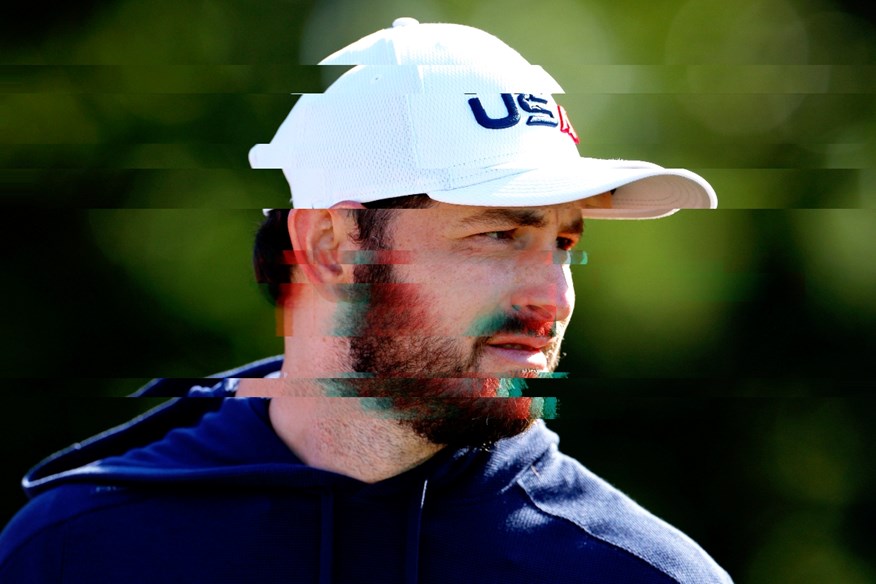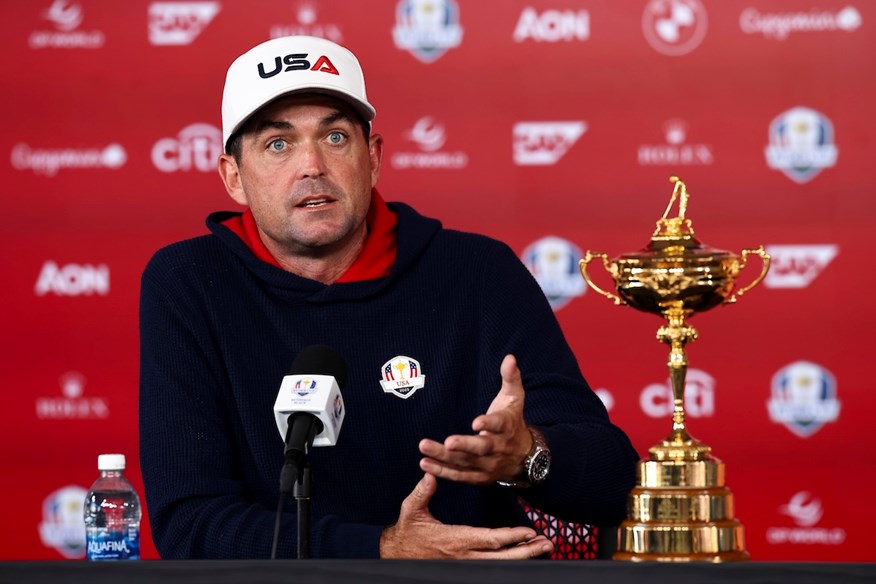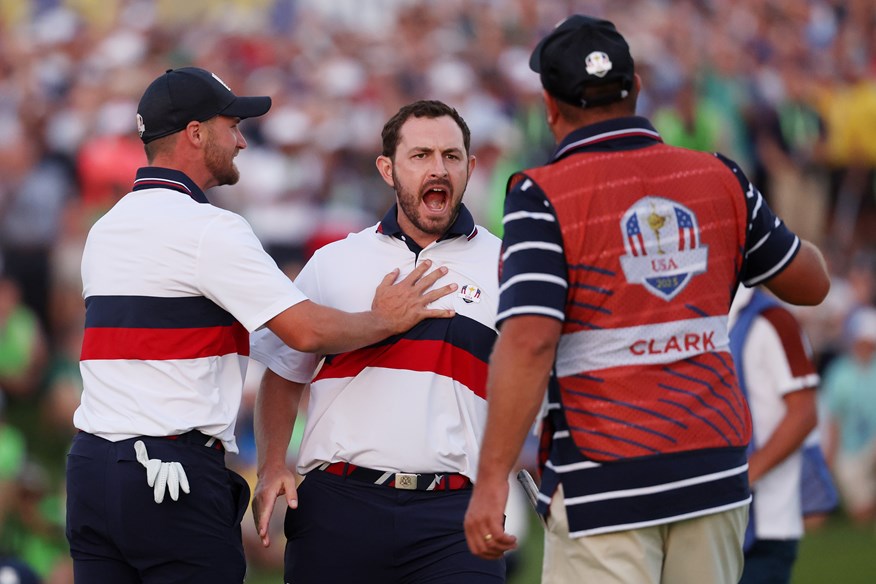It doesn’t matter where you end up if you follow the money – the damage was done on the journey
Last updated:

The controversial subject of Ryder Cup pay has already divided the golf world and left the Americans on the defensive. Well, writes Alex Perry, if the cap fits…
Welcome to the 45th playing of the Ryder Cup. A tournament that generates so much money you wonder where they put it all. (Theory: it’s in a vault somewhere where officials can go and swim in it like Scrooge McDuck.)
Outdated ‘80s references out of the way, the PGA of America is expected to make 70 million big ones from the Bethpage matches. Surely the players – you know, the reason we’re all here having this argument in the first place – should get a slice of that, right?
Wrong. But we’ll get to that.
It’s been the hottest topic here on Long Island. And, boy, has it rattled some feathers. The Americans, for the first time, are making green to pull on the red, white and blue.
Previously, thanks to Tiger Woods and Friends kicking off in ’99, the players received $200,000, which would be donated to a charity of their choice. Then, two years ago in Rome, the chatter from the visiting team’s locker room was that Patrick Cantlay refused to wear a USA-emblazoned cap unless he was shown the Benjamins to do so. It wasn’t that, he insisted at the time. They just couldn’t find a hat that fit his (numb) skull. Yeah, and Grizzly Adams had a beard.
Fast forward to this year and – completely unrelated and in an absolutely-nothing-to-see-here manner – the players are getting a bigger slice of the pie. Five hundred thou, to be precise. Only now, they get to keep 40 percent of it. If they want to, of course.
All the players who have been asked about it so far have said they will be donating it – though captain Keegan Bradley, who was so instrumental in the move that he may as well have licked the brown envelopes himself, rather curiously said some of his team “aren’t comfortable sharing what they’re going to do with their money”. Subtext: they are going to swim in it.

In context, it’s such a laughably insignificant amount of money.
Between the 12 of them, Team USA have earned an eye-watering $600 million in official prize money. (As in: not including the ludicrous end-of-season bonus packages, or any sponsorship deals.)
Scottie Scheffler, the World No.1 and soon-to-be third player to break through the $100 million earnings barrier, could drop $300,000 in the street and he wouldn’t notice.
The general consensus among Americans, both on the ground at Bethpage and on social media, is that this isn’t a story worthy of making headlines and the Europeans should all stop using it as a stick with which to beat them. This is, after all, the Land of the Free speech – just as long as you’re not saying something they don’t want to hear.
But the fact this is the first time in this wonderful competition’s near 100-year history that players are directly benefitting financially is a big deal – even if we are talking, relatively speaking, about pocket change.
Contrast it to the European players, who were called individually by their captain Luke Donald to ask if they want to be paid. The noes won it – 12 to zero.
Whether or not the 12 American players decide to donate their stipend will perhaps never be known. But they should never have been put in this position.
And it was all so easily avoidable. The PGA of America and European Tour Group could have handed each player a certain amount of money – whether it be a hundred grand or a million, it doesn’t matter, as long as it’s for charity – and we could have all made a feel-good story of this.
Instead, in a sport that’s been irreparably fractured by the dollar symbol at the top level, its one last pure competition – from a playing perspective, at least – is no longer that. Whether you choose to believe the players that they had nothing to do with the decision is up to you.
We’re still days away from the first ball being struck at Bethpage, and the Americans have lost the moral battle.
Even Luke Donald, golf’s most unassuming character, couldn’t resist a couple of digs during the tournament’s opening ceremony – which was brought forward to Wednesday thanks to Mother Nature’s plans.
“This isn’t about prize money or ranking points,” the European captain said. “It’s about the legacy you leave behind.” A few moments later, he described his team as “fueled by something money cannot buy.”
Not that the opponents will care, of course.
Still, at least Cantlay has a cap that fits now.

What the players have been saying in the Ryder Cup pay row
A number of Team USA have been asked about what they will do with the money. This is what they said…
Scottie Scheffler: “My wife and I like to do a lot of stuff in our local community and I’ve never been one to announce what we do. I don’t like to give charitable dollars for some kind of recognition. We have something planned for the money that we’ll be receiving. I think it’s a really cool thing that the PGA of America has empowered us to do. I have a deep passion for the city of Dallas, I have a deep passion for the organizations that we support at home, and I’m excited to be able to take this money and be able to do some good in our local community.”
Xander Schauffele: “Being a product of the PGA Tour, if there’s one thing besides competing at a high level that’s taught me, it’s to have a positive impact on the areas that you’re in, and I don’t see why this would be any different. There’s a lot of pride that comes into playing in one of these, and yes, we’re happy to get paid for this, and yes, I plan on donating it. It’s something that selfishly will make me feel good about what I do.”
Patrick Cantlay: “I’m going to donate the money to my charity. We work with a number of foundations. We work with First Responders Children’s Foundation and we work with the SCPGA Junior Tour and we’ve work with St Jude and Folds of Honor, and so I’m excited about our continued partnership with those organizations. They do such fantastic work, and a lot of their work is really important to me. If I can give back to organizations that have helped make me who I am today, hopefully someone growing up in Southern California gets that opportunity and can follow their dreams as well. But I wasn’t a part of that decision-making process [to be paid]. I don’t think any of the team members were. I can only speak for what my plans are.”
Collin Morikawa: “It [gives] us an opportunity to pay our respective teams, because the teams behind us, they don’t get the recognition that we do, but they deserve a lot of it that we get. But also just to give back to our own communities. We have a lot of communities back home that sometimes don’t get the recognition, that don’t get the word-of-mouth just because we don’t travel to those places that the PGA Tour stops on every week. Just more opportunities for us to help out people that we care about.”
